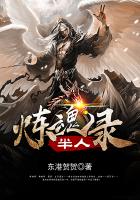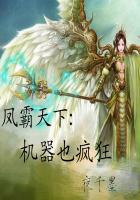The traveler went on foot or in a bullock cart or on a horse which he bought for the purpose. As soon as he was out of his own little State or principality he was among strangers; nobody knew him, nobody took note of him, and from that time his movements could no longer be traced. He did not stop in towns or villages, but camped outside of them and sent his servants in to buy provisions. There were no habitations between villages. Whenever he was between villages he was an easy prey, particularly as he usually traveled by night, to avoid the heat. He was always being overtaken by strangers who offered him the protection of their company, or asked for the protection of his--and these strangers were often Thugs, as he presently found out to his cost. The landholders, the native police, the petty princes, the village officials, the customs officers were in many cases protectors and harborers of the Thugs, and betrayed travelers to them for a share of the spoil. At first this condition of things made it next to impossible for the government to catch the marauders; they were spirited away by these watchful friends.
All through a vast continent, thus infested, helpless people of every caste and kind moved along the paths and trails in couples and groups silently by night, carrying the commerce of the country--treasure, jewels, money, and petty batches of silks, spices, and all manner of wares. It was a paradise for the Thug.
When the autumn opened, the Thugs began to gather together by pre-concert. Other people had to have interpreters at every turn, but not the Thugs; they could talk together, no matter how far apart they were born, for they had a language of their own, and they had secret signs by which they knew each other for Thugs; and they were always friends. Even their diversities of religion and caste were sunk in devotion to their calling, and the Moslem and the high-caste and low-caste Hindoo were staunch and affectionate brothers in Thuggery.
When a gang had been assembled, they had religious worship, and waited for an omen. They had definite notions about the omens. The cries of certain animals were good omens, the cries of certain other creatures were bad omens. A bad omen would stop proceedings and send the men home.
The sword and the strangling-cloth were sacred emblems. The Thugs worshiped the sword at home before going out to the assembling-place; the strangling-cloth was worshiped at the place of assembly. The chiefs of most of the bands performed the religious ceremonies themselves; but the Kaets delegated them to certain official stranglers (Chaurs). The rites of the Kaets were so holy that no one but the Chaur was allowed to touch the vessels and other things used in them.
Thug methods exhibit a curious mixture of caution and the absence of it;cold business calculation and sudden, unreflecting impulse; but there were two details which were constant, and not subject to caprice: patient persistence in following up the prey, and pitilessness when the time came to act.
Caution was exhibited in the strength of the bands. They never felt comfortable and confident unless their strength exceeded that of any party of travelers they were likely to meet by four or fivefold. Yet it was never their purpose to attack openly, but only when the victims were off their guard. When they got hold of a party of travelers they often moved along in their company several days, using all manner of arts to win their friendship and get their confidence. At last, when this was accomplished to their satisfaction, the real business began. A few Thugs were privately detached and sent forward in the dark to select a good killing-place and dig the graves. When the rest reached the spot a halt was called, for a rest or a smoke. The travelers were invited to sit.
By signs, the chief appointed certain Thugs to sit down in front of the travelers as if to wait upon them, others to sit down beside them and engage them in conversation, and certain expert stranglers to stand behind the travelers and be ready when the signal was given. The signal was usually some commonplace remark, like "Bring the tobacco." Sometimes a considerable wait ensued after all the actors were in their places--the chief was biding his time, in order to make everything sure. Meantime, the talk droned on, dim figures moved about in the dull light, peace and tranquility reigned, the travelers resigned themselves to the pleasant reposefulness and comfort of the situation, unconscious of the death-angels standing motionless at their backs. The time was ripe, now, and the signal came: "Bring the tobacco." There was a mute swift movement, all in the same instant the men at each victim's sides seized his hands, the man in front seized his feet, and pulled, the man at his back whipped the cloth around his neck and gave it a twist the head sunk forward, the tragedy was over. The bodies were stripped and covered up in the graves, the spoil packed for transportation, then the Thugs gave pious thanks to Bhowanee, and departed on further holy service.
The Report shows that the travelers moved in exceedingly small groups--twos, threes, fours, as a rule; a party with a dozen in it was rare. The Thugs themselves seem to have been the only people who moved in force.
They went about in gangs of 10, 15, 25, 40, 60, 100, 150, 200, 250, and one gang of 310 is mentioned. Considering their numbers, their catch was not extraordinary--particularly when you consider that they were not in the least fastidious, but took anybody they could get, whether rich or poor, and sometimes even killed children. Now and then they killed women, but it was considered sinful to do it, and unlucky. The "season"was six or eight months long. One season the half dozen Bundelkand and Gwalior gangs aggregated 712 men, and they murdered 210 people. One season the Malwa and Kandeish gangs aggregated 702 men, and they murdered 232. One season the Kandeish and Berar gangs aggregated 963 men, and they murdered 385 people.















